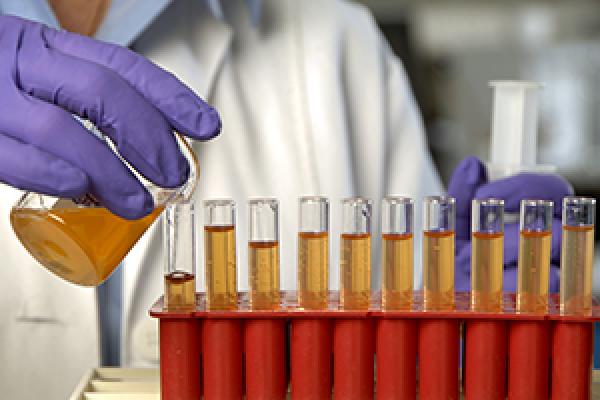Office of Research awards COVID-19 funding to Arts and Sciences studies

The Office of Research recently announced its third and final round of funding as part of its COVID-19 Seed Funding Program aimed at addressing critical health and community problems related to COVID-19.
Four of the 11 studies in the final group are led by faculty in the College of Arts and Sciences. The amount given for the final round of projects was $310,000, bringing the total amount awarded by the Office of Research to over $770,000. Of the 24 total COVID-19 research projects granted funding at Ohio State, nine are in the college.
The four research projects in the College of Arts and Sciences from the final group are:
- Daniel Strunk, associate professor in the Department of Psychology, is lead investigator for a study that will evaluate health, economic and social stressors associated with COVID-19 and their relation to anxiety and depression over time. The study will examine the use of coping strategies to try to lessen the impact of key stressors on mental health.
- Nicholas Breyfogle, associate professor in the Department of History, will create and share articles, podcasts, videos and lesson plans on the history of pandemics to expand public knowledge and understanding of the current coronavirus pandemic.
- Glenn Martinez, professor of Hispanic linguistics and director of the Center for Languages, Literatures and Cultures, will inventory and assess sources, trust, satisfaction and comprehension of COVID-19 information by Spanish speakers in Columbus.
- Richard Petty, Distinguished University Professor in the Department of Psychology, will lead an interdisciplinary collaboration to study ways to enhance compliance with COVID-19 guidance, such as mask wearing and social distancing.
The five Arts and Sciences research projects awarded funding from the first round of the COVID-19 Seed Funding Program in mid-April included:
- Michael Neblo, director of the university’s Institute for Democratic Engagement and Accountability (IDEA), will examine ways to improve health behaviors by developing guidelines to support communication between elected officials and the public during the COVID-19 crisis.
- Dmitri Kudryashov, associate professor in the Department of Chemistry and Biochemistry, and his team will study the role of defensins, potent antibiotics made within the body that play an important role against invading microbes, and whether they can block virus entry into human cells.
- Elisabeth Root, associate professor in the Department of Geography and the College of Public Health's Division of Epidemiology, and Bridget Freisthler, associate dean of research in the College of Social Work, will explore the COVID-19 crisis in the context of stress, social support concerns and any geographic factors associated with punitive parenting practices, including physical punishment.
- Irina Artsimovitch, professor in the Department of Microbiology, and her study team will analyze the molecular mechanism of RNA synthesis of the novel coronavirus, increasing understanding of the building blocks of COVID-19 disease to help scientists design drug targets and vaccines.
- Bruce Weinberg, professor in the Department of Economics, and a team of researchers will estimate the economic effects of COVID‐19 and the policy responses to it. The research will examine how those policy responses affect different types of workers.
The Office of Research awarded a second round of COVID-19 funding to six projects in late April, though none were led by Arts and Sciences researchers.
“Ohio State, with its multidisciplinary approach, is uniquely positioned to provide innovative solutions to combat the impacts of this global pandemic, and we want to do everything possible to support our outstanding researchers in these efforts,” said Morley O. Stone, senior vice president for research. “With these seed grants, we will quickly advance our understanding of COVID-19 and its impacts to help us better address the pandemic we’re facing around the world.”
